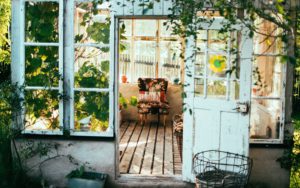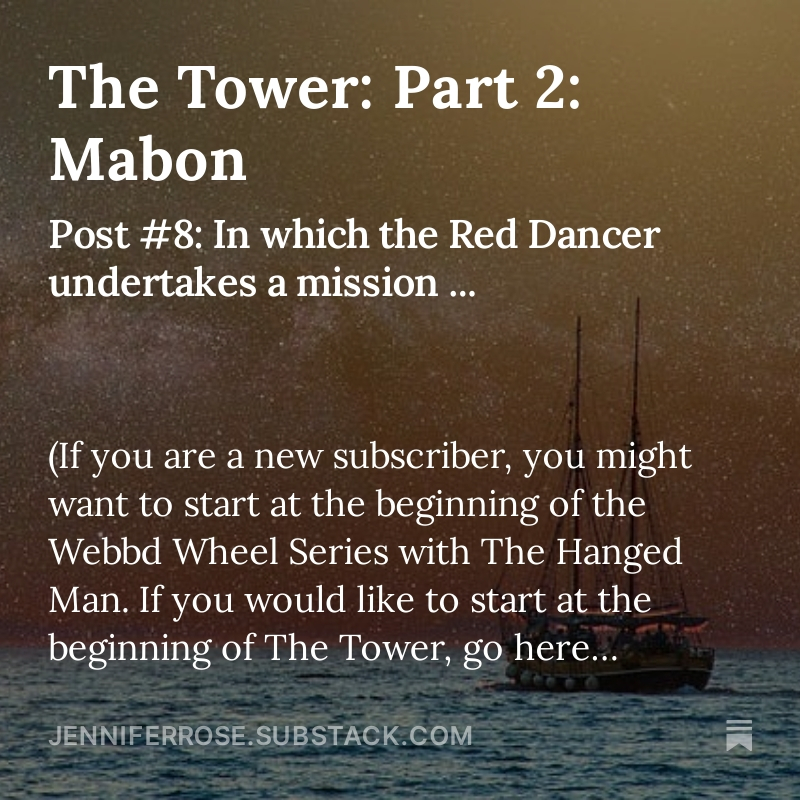A couple of weeks ago a discussion I was involved in touched fleetingly upon the idea of an internal locked room, where we keep our most private thoughts and feelings. I’ve been thinking about the concept ever since, fascinated by the metaphor.
What’s in my locked room?
I don’t know. I don’t want to know, and I don’t want anyone else to know. That’s why I lock that stuff up!
But what’s in there?
I can’t let it go.
As a storyteller, I immediately recognize this common theme running through oral stories and folklore from all traditions. Something is locked or hidden. It’s forbidden to look. Lovers make a bargain. Authority demands obedience. The consequences of looking are not fully revealed, but it’s forbidden to look!
Someone always looks. Remember Pandora? Consequences ensue.
I’ve never really thought about an internal locked room until now; never considered how big it might be or what’s behind the door. I haven’t realized whatever my room contains is locked away from me as well as everyone else. All the memories I don’t want to remember. The hurts, the fears, the terrible thoughts, my unforgiveable deeds. The things about myself I can’t love.
Is it unhealthy to have a locked room? I assume everyone has one, but maybe not. I’m not uncomfortable about the presence of mine, but I question the wisdom of locking myself out. The road to self-love is long and arduous; can I practice it if I still don’t want to face (and accept or forgive) parts of who I am? That doesn’t feel like self-love.
Is a locked room adaptive or maladaptive? Could it be both? Does size matter? (You know what I mean. The size of the room!) Maybe the size is irrelevant and it’s the contents that count. 
Why do we put things in our locked room? Why did I put things in mine?
Well. I’m ashamed. Or I’m afraid of emotional pain, conflict, or of hurting others. Maybe it’s something I’m not ready to forgive myself or others for. Maybe I lock it away to fester?
Ugh.
So is the locked room about keeping me safe or others safe?
Both, I think. Others safe from me and me safe from others. But it’s also a holding place where I keep things I don’t want to deal with.
I’ve read Radical Honesty by Brad Blanton. It gave me the horrors. I’m unable to see radical honesty as a pathway to healthy cooperation and collaboration. For me, privacy is a need, not only in an external sense of spending time in solitude, but also in the internal sense. This is unsurprising from a highly sensitive, empathic person who has experienced emotional trauma and abuse. I need my privacy and I’m intensely protective of the privacy of others.
I think a locked room is an essential piece of healthy functioning.
However, we as a species have a dreadful propensity for carrying things too far.
Not me, of course. I never do that.
How do we decide what’s appropriate to share and what’s not? Working with patients and patrons at the pool facility where I’m employed, I constantly feel battered with oversharing. People, especially seniors, are lonely. They have a lifetime of memories and experience. They have health issues that frighten them. They need to talk. My team and I do our best to be compassionate listeners.
But sometimes I wish I could forget what I’ve heard. Secrets are safe with me, but the feelings that come with them are burdensome; as an empath I’ve struggled all my life to avoid taking on the emotions of others. Mostly not very successfully.
Does everyone need some privacy? Is it a continuum? Do I need too much privacy? How much is too much? Who gets to decide? Is there such a thing as being too open, too un-private, if you will? Or does everyone have a locked room, even if it’s only the size of a mousehole?
Rooms. What happens in private rooms? Clutter. Dust bunnies. Cat hair. Hoarding. Loneliness. Despair. Death. Birth. Love. Sex. Creativity. Cooking. Self-care. Self-harm. Sleeping. Using the toilet. Distraction. Playing out addictions. Violence. Weeping. Exercising. Entertainment. The human activities of daily living we all engage in.
A locked room could be a dark and bitter dungeon or a light and airy penthouse. What kind of a locked room do I have? What kind do I want? 
I hate clutter. Is my locked room cluttered? Surely not! Well, maybe. There’s 60 years’ worth of stuff in there! It’s spring. I kind of want to unlock it, open a window, air the place out. Maybe tidy up a little? Let go of some stuff? Sort? Organize? Would that be so terrible, so impossibly painful?
I have a sneaking suspicion some of what’s in my locked room is not even mine, but things given to me. Or imposed on me. I inherited toxic beliefs, experiences, and feelings from generations before me and believed it was my job to carry and preserve them.
Why am I storing what doesn’t belong to me?
Perhaps my locked room contains parts of myself I tried to get rid of and now need. Treasure, if you will. Maybe exploring it could be in part an act of reclamation.
Maybe if I open the door a tower of horror will fall on top of me and I’ll be smothered. Maybe if I don’t open the door green slime will ooze out from under it.
What’s in there?
I have some answers. My relationship with a cat named Ranger is in there, and no, I don’t want to talk about it. Every room needs a cat, in any case.
Health struggles (not serious) I’m largely unwilling to share are in there, although I have recently cracked the door and let some of them out. Carefully. Nothing bad happened.
My relationship with my children, one in particular, is in there. Now and then I’ve let a small amount of that out, too, but not often, not much, and only to my most trusted female friend.
My locked room is filled with passion. Passionate feelings of all kinds I’ve been hiding and repressing all my life. They’re strong and intense and I’ve been brutally taught they’re ugly, frightening, and obscene.
This has lately become a problem because rage is finding its way out of my locked room with disturbing results. Having escaped the room, it has no intention of being stuffed back in there and restrained. It’s a daily challenge at home, at work, and in the most unexpected contexts. It has stories to tell and I’m listening, reluctantly, but it frightens me and I’m ashamed of it. I thought I would always be able to keep it locked up and controlled. It appears I was wrong.
What else? I don’t know. These are the only specifics I can come up with. I’ll probably become conscious of more, now that I’m thinking about it.
I won’t fling the door of my locked room open and do a thorough cleanout because it’s the wellspring of my creativity, any small wisdom I’ve gained, and my empathy. As a gardener and a writer, I believe in compost. Something wild and primal in me, nurtured by Baba Yaga, loves the stink, the rot, the death, the blood, because these are the cradle of life. Nature does not waste. It’s all recycled. My experience of pain and passion empowers my writing, power I would not lessen in spite of its high price. Such power is born and rooted in fecund darkness, in muck mixed with blood and tears, in the edge of chaos, not in a bright, shining, passionless, well-aired room.
Yet I fear the passion the most. It feels like too much to release or keep contained. I fear its power to tear me apart, which is why I locked it away in the first place, and I fear its potential to hurt others. Much of it fuels my writing. I bleed some off with exercise, especially dance. But those are safety valves rather than open doors. Part of me wants to set my passion free. But for now most of it will stay in my locked room.
Questions:
- Do you have an internal locked room? How do you feel about it?
- Do you believe emotional privacy is essential, or do you think it’s unhealthy? Is it a need on a continuum?
- Are you familiar with the concept of radical honesty? What do you think about it?
Leave a comment below!
To read my fiction, serially published free every week, go here: 
© 2024, Jenny Rose. All rights reserved.

Loved this writing, J. C recommended it this morning.
I used to meditate often and found a large metal locked double door very sleek and modern. Visualize a freight elevator with a latch like a semi tractor trailer and a lock the master company has not even imagined yet.
For months I tried to discover how to open the door, I kept returning, so curious about what was behind the door. I went nowhere else in my meditation except to stare at the door.
Finally, I decided I had framed the question wrong, all I needed to know about the door is why it is there. I decided It was for my own protection, and pretty much haven’t thought about it again for 35 years.
I believe that people can change, if they choose to, if they need to to cope. I think I’m using my giant storage facility in the same way you’re using your room; a place for the things that have shaped me, but are best left out of the way where I won’t be tripping over them accidentally.
My late husband was disabled by combat post-traumatic stress disorder from Vietnam. He explain to me one time that he was not interested in opening the door to his room full of terrors, He said he had worked very hard to get them in there and get the door locked. He was so fearful of revisiting those experiences and the self-knowledge that he refused the therapy that could guide him through for giving himself.
In the novel Sparks like Stars, Nadia Hashimi hides most of her identity and her status as witness to her family’s murder in the small basement room that saved her life. Until she is able to resolve a small part of her loss as an adult, she is unable to allow any emotional closeness.
I think these rooms have hinges on their doors, in case we need to access things we’ve put away. I’m not familiar with brutal total honesty, I think I’d rather an honesty that was metered slowly and gently, perhaps into a slightly larger space, but still lockable.
Thank you for reading and commenting, Kendy. I’ve had some interesting conversations with women about this idea of an internal locked door. Your image of returning again and again to your own reminded me so strongly of one of my characters, I’m stunned. Perhaps I inadvertently stumbled onto a universal experience of some kind. Here’s a link to that particular piece of writing. I do think these doors can be opened, and I also think sometimes it’s necessary to lock experiences behind them, as in the case of your late husband (so sorry for his suffering, and yours). My female friends and I have debated if it’s better to leave things quiet behind our locked doors or explore them. I lean toward opening the door a bit to find out if I’m storing things from the past I could now face and heal. We all agree the locked door functions as a container for experience we simply cannot integrate or manage in the now, including truths we feel unable to face. The trick is, I think, we must eventually face ourselves, reality, whatever it is we’ve saved for later. So many different ways to think about what might be behind the door! I certainly agree with what you say regarding honesty. Radical honesty feels to me like a chainsaw. Honesty, by all means, but not in totality every time, and gently does it!